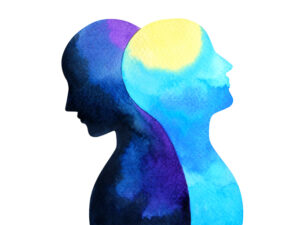
One in six American youth experience a mental health disorder each year. In California, about a third of adolescents experienced serious psychological distress between 2019 and 2021. In that same time frame, there was a 20% increase in adolescent suicides.
Recognizing the need for more mental health support, the California Department of Health Care Services (DHCS) launched the Behavioral Health Virtual Services Platform last week. The platform includes two digital health solutions: BrightLife Kids (developed by Brightline) for parents/caregivers and kids ages 0 to 12 and Soluna (developed by Kooth) for teens and young adults ages 13 to 25. These solutions are free for all users in California and are part of the state’s CalHOPE program with funding from the Children and Youth Behavioral Health Initiative.

With the Rise of AI, What IP Disputes in Healthcare Are Likely to Emerge?
Munck Wilson Mandala Partner Greg Howison shared his perspective on some of the legal ramifications around AI, IP, connected devices and the data they generate, in response to emailed questions.
BrightLife Kids and Soluna are both web and app-based. They offer access to one-on-one coaching, educational content, assessments and tools, care navigation services, peer communities and crisis and safety protocols. While the solutions don’t provide clinical care, the care navigation services can connect users with clinical support if needed.
“The bottom line is that our young people are facing a mental health crisis,” said Autumn Boylan, deputy director for the office of strategic partnerships at DHCS, in an interview. “This is an effort to reach young people early as they’re starting to deal with their emotions, as they’re starting to have stress and conflict and struggle. We can provide them with a safe outlet to express those emotions, to develop skills to cope with their emotions … and really give kids an opportunity to have a place to turn.”
BrightLife Kids is available for download on IOS devices and will be available on Android devices in mid-2024, while Soluna is available for both IOS and Android devices. Both Brightline and Kooth are marketing directly to consumers — including through TV, Spotify and social media — to get the word out about these products. They’ll also be working with schools, community-based organizations, faith-based organizations and health plans to let people know about the solutions.
DHCS is tracking the program over time to understand if it is having a positive impact on California’s youth. The organization is looking at metrics like utilization, retention and what content is resonating with users.
DHCS developed this program after an extensive research process, which included a market scan of over 450 digital solutions and engaging with a panel of experts in California and the nation. The organization also had a youth advisory board and convened focus groups that tested the solutions and helped select the vendors.
During this research process, DHCS determined that having two solutions targeting two different age groups was needed.
“Young children have vastly different needs in terms of emotional development, in terms of social and emotional learning, in terms of the types of content,” Boylan said. “Young children also require direct support from their parents or caregivers to be able to access those types of resources. Whereas teens and young adults have different needs and can access those resources on their own.”
In launching these two digital solutions for California youth, Boylan said she ultimately wants “outcomes for kids to just be better.”
“We want kids to get access to mental health and substance use disorder treatment before their emotions, before their behaviors, before their circumstances escalate to a point where they need crisis intervention or emergency support or hospitalization,” Boylan said.
The launch of California’s Behavioral Health Virtual Services Platform comes after New York City announced another program supporting teen mental health in November. The city’s program offers Talkspace’s telehealth services for free to all New York City teens between the ages of 13 and 17. They can access mental health education, self-guided exercises and one-on-one therapy with a Talkspace therapist.
Picture: Benjavisa, Getty Images














